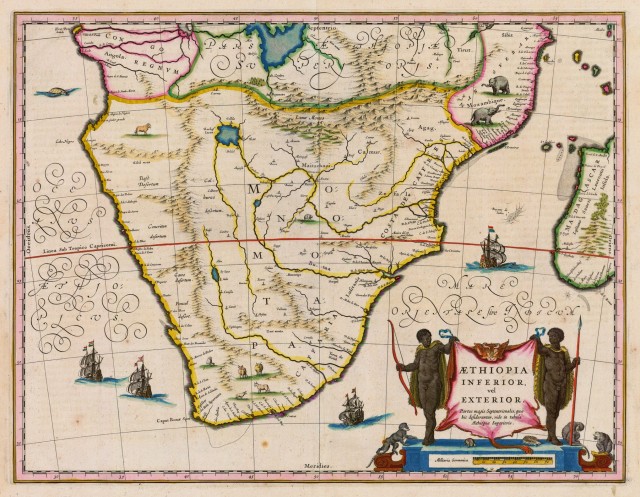Mutapa
Mutapa, or Mwene Mutapa (meaning “Ravager of the Lands”), is the title held by a dynasty of kings that ruled the area that is now ZIMBABWE and MOZAMBIQUE from the 1400s to the 1880s. Historians also use the term to refer to the state led by these kings. The Mutapa state probably arose from branches of the nearby culture of Great Zimbabwe. Mutapa rulers were members of the nzou, or elephant clan, and were said to be descendants of a legendary king named Mbire. Nyatsimba, who ruled in the late 1400s, was the first to take the title Mwene Mutapa. During the 1500s, the kings attempted to expand their territory. However, in most cases, those who were sent to conquer new lands for Mutapa set up independent dynasties of their own.
The heart of the Mutapa state was the territory of Mukaranga, a region of fertile soil, valuable grazing land, and rich deposits of gold. Although most people lived by farming, some mined gold and hunted elephants for ivory. Half of the gold and ivory collected went to the Mutapa ruler. The rest was used in trading for imported cloth and beads. Trade included expeditions to the Zambezi River and to ports on the Indian Ocean as well as a lively exchange with Muslim and Portuguese merchants living under Mutapa rule.
In the 1570s Portuguese forces invaded the Mutapa state. After conquering the region in the mid-1600s, they quickly exhausted its gold fields. Many of the original inhabitants of Mutapa died or migrated to other areas. Frequent civil wars ravaged the state during the 1600s and 1700s. The power of the Mutapa rulers gradually declined, and by the 1880s the Mutapa state had faded away.
